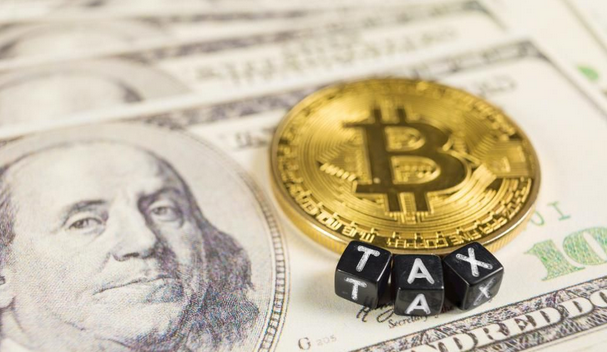With 2021 in sight, bitcoin (BTC) and other crypto investors in the US are facing a fork in the road. They can cash in on the gains that 2020 has delivered and take profits off the table or continue to hodl until the new year or longer. Whichever way they decide to go will determine when and how much they will have to fork over to Uncle Sam come tax day.
That was then, this is now
Sharon Yip, certified public accountant (CPA), a crypto tax advisor working closely with crypto tax software company CoinTracking, spoke to Cryptonews.com about the tax dynamics for crypto investors. Yip, whose practice is dedicated to helping cryptoasset investors and blockchain companies dealing with crypto taxes, explained how in 2018, many people weren’t prepared to pay crypto-related taxes.
Many investors lost money as their portfolios tumbled in value. And when tax time came around, she said, they didn’t have the money to cover the bill. So they either intentionally avoided reporting their crypto transactions or simply didn’t know how to.
Now many of those investors are in hot water after receiving notices from the US Internal Revenue Service (IRS) related to 2018. This effort came as a result of US crypto exchanges like Coinbase issuing 1099-K forms to certain customers, which allowed the tax agency to match the forms with individuals who didn’t report their taxes. Investors whose crypto payments exceed USD 20,000 or who have completed more than 200 transactions are the recipients of a 1099-K.
“This is very serious. Based on the people who received the tax notice and contacted us for help, we’ve seen a range of tax assessments go from USD 45,000 to USD 1.5m based on sales proceeds once you throw in penalties and interest,” said Yip, adding that every single time you trade, it adds up. “It’s like a snowball that keeps rolling bigger.”
Taxable event
The IRS classifies cryptoassets as property. Yip’s advice to investors who are looking to capture a profit in this bull market is to have a clear idea about gains and losses and not to make assumptions. CoinTracking advises clients to make tax projections to gauge how much they might owe. Even if you have a full-time job with a W2 and just trade on the side, it might not be enough to cover taxes for capital gains. As a result, you could end up with a large balance due, which could trigger penalties for underpayment.
First and foremost, Yip explained, investors should know that every crypto transaction is a taxable event. The only time it’s not taxable is if you purchase crypto with fiat money, which is akin to buying stock. But if you are buying one crypto with another crypto, it’s a taxable event.
“It’s a two-step transaction. For example, if you’re using BTC to buy EOS, you are treated as if you are selling BTC for USD and then use the USD to buy the second coin, EOS. This situation will recognize a tax gain or loss,” explained Yip.
“People are not prepared and have no idea how to handle this. Whether they pocket the profits or invest in other coins that could go higher, people really need to be prepared for the tax consequences. I’m shocked how people thought as long as they didn’t cash out, they don’t have to pay taxes.”
She gives the scenario of an investor buying BTC at USD 5,000. Now that it’s trading at USD 23K, they might sell it and use the proceeds to buy another coin. Even though they put zero cash back in their pocket, it’s a taxable event.
“From the IRS’ perspective, it’s the same whether you sold at USD 23,000 and pocketed the money or turned around and bought another coin. It’s your choice,” Yip said.
It is a common belief that the majority of crypto investors didn’t report their crypto transactions on tax returns, and as Yip noted, the government needs the money now more than ever with all of the stimulus it is giving away.
“This is an area where they can go after people and get their money back,” she said.
When to sell
So when the stakes are high and every cryptoasset transaction is a taxable event, when do you sell? According to Yip, it depends on your goals. It makes sense to sell in several scenarios.
- First, even with bitcoin’s gains, there might be some coins in your portfolio that have proven to be duds. They are just sitting there with an unrealized loss. If you decide you don’t want the coin, take the loss and get out of the coin so you can realize the loss and use it to offset other capital gains.
- In a second scenario, it makes sense to sell if you need the cash. Investors might find themselves in a situation where they’ve got too much money tied up in the market and none left over to live on or pay taxes. Selling to get the cash makes sense in this case, said Yip.
- Third, if you think the market is going to crash in 2021 and want to capture this year’s gains, get out of the market. If you’re right and the market goes down, buy-in at a cheaper price and pocket the difference, Yip advised.
When to hold
By the same token, there are circumstances under which you would want to hold off on selling in 2020.
“If you are looking at substantial gains and if you can wait, it may make sense to wait until Jan. 1, unless you’re scared that when the new year bell rings the market is going to crash. Then it’s not a good idea to wait. But usually, it doesn’t happen like that. If you wait, you can delay your tax liability for 15 months. So that is definitely a good idea if you want to buy more time. If you have a huge gain, your tax liability can be a large amount. If you can wait more than a year, time is money,” said Yip.
Another reason to hodl for the rest of 2020 is if you have plans to be in the market for the long-term. That’s because once you sell, the clock resets and you reestablish your basis and holding period, she explained. And long-term capital gains are better than the ordinary tax rate attached to short-term capital gains.
“If you have coins and want to have long-term capital gains treatment, you probably don’t want to sell. That’s probably the biggest reason you don’t want to sell,” said Yip, adding that if you want to get out of the market but don’t have the money to pay for taxes, don’t sell.
As a general rule of thumb, CoinTracking advises clients to set aside 35% of their gains to cover federal and state taxes.
Author: Gerelyn Terzo
Read more at: https://cryptonews.com/exclusives/bitcoin-crypto-taxes-in-us-when-to-sell-and-when-to-hodl-8719.htm







